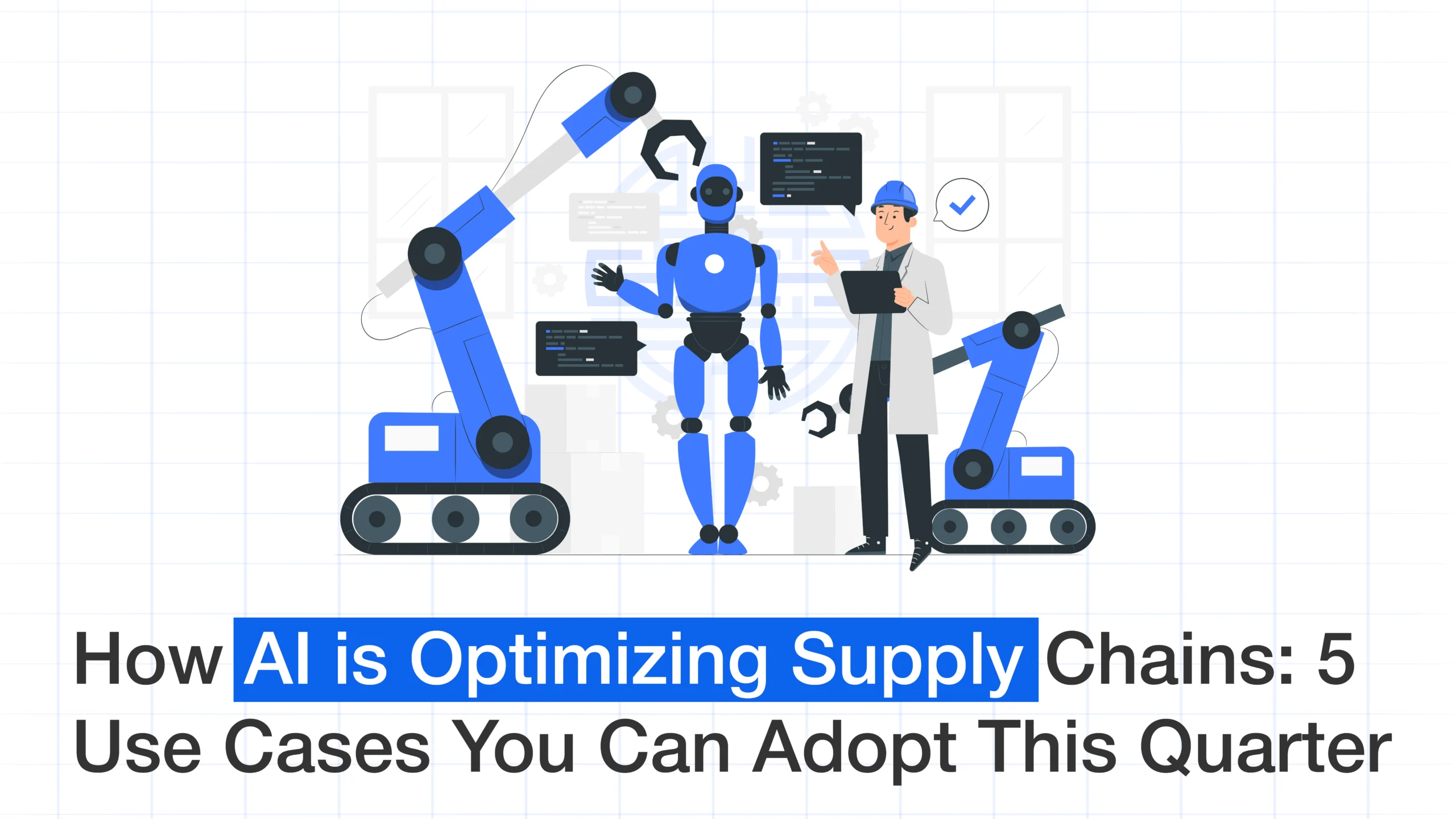
Leaders of the supply chain face a time when traditional processes can no longer live at the speed of global demand. AI in supply chain management changes how business estimates demand, transmits goods and responds to disruptions.
AI in Supply Chain Management: A Strategic Advantage for 2025
- August 13, 2025
- Ayesha J
- 10:00 am
Leaders of the supply chain face a time when traditional processes can no longer live at the speed of global demand. AI in supply chain management changes how business estimates demand, transmits goods and responds to disruptions.
From automation of storage control to predict risk, AI not only gives step -by -step improvement, but benefits of radical efficiency. This is why global companies – and even agile start -up – AI are built in all stages of logistics and buying processes. Do visit our Kirshi technologies, to know more how effectively we have enhanced this strategy.
Use Case 1: Predictive Demand Forecasting
Predictive models driven by AI foresee demand by analyzing past sales data, seasonal trends, and even social mood. Accurate purchase planning is made possible by these models’ instantaneous adaptation to market changes, in contrast to static spreadsheets.
Benefits in practice include less overstocking, fewer last-minute restocks, and improved cash flow. Retail behemoths like Zara and Walmart are already using this technology to beat rivals.
Use Case 2: Smart Inventory Management
AI in supply chain management shines in inventory optimization. By continuously analyzing sales velocity, supplier lead times, and market signals, AI ensures you hold the right stock levels — no more, no less.
This reduces the number of idle machines that manufacturers must wait for parts.
For manufacturers, this means that less useless machines are waiting for parts. For retail suppliers, it means maximizing the shelf space for products, cutting storage costs.
Use Case 3: AI in Logistics and Route Optimization
When discussing AI in logistics and supply chain, the route passing often leads to the most visual change. The AI systems meet live traffic updates, weather conditions and distribution barriers to create the fastest and most cost -effective route.
Results: Low fuel costs, fast delivery and emissions of low carbon – a victory for profitability and stability equally. The use of AI in logistics helps companies to respond to disorders such as closures or delays in road ports in real time.
Use Case 4: Quality Control and Defect Detection
The application of artificial intelligence in logistics is not limited to moving goods – it is scattered to inspect them. Computer visions driven by machine learning can identify faults on high accuracy production lines than human inspectors.
This initial detection reduces the chances of defective products reaching customers, protecting your reputation brand and reducing the return cost.
Use Case 5: Supplier Risk Management
The global supply chain depends on a network of suppliers and takes the degree of each risk. The AI supplier can analyze the news reports, accounts and geopolitical development to assess stability.
When a high-risker is discovered for the bankruptcy risk of a supplier-WAR announced by the system purchasing teams, which is able to work before they interfere.
How to Start Implementing AI in Your Supply Chain This Quarter
- Evaluate your pain points – is this inventory’s overflow, delivery delay or quality problems?
- AI-operated equipment-clay-based demand forecast software for integrated logistics platform.
- Pilot before scaling – start with a warehouse or product line to test ROI.
- Train your team – make sure the employees understand both the AI tea and the boundaries.
Even small and medium-sized businesses can carry AI by taking advantage of cloud platforms with pay-u-go prices. Check out Kirshi’s portfolio to get to know about us.
The Next Decade of AI in Supply Chain Management
The use of AI in logistics is only the beginning. Over the next decade, we’ll see fully autonomous warehouses, predictive supplier collaboration, and near-zero waste operations.
For businesses willing to act now, the competitive advantage will be enormous. AI is no longer a futuristic concept — it’s the operational backbone of tomorrow’s global trade.
Transform your business with Kirshi Technologies — harness AI, automation, and innovation to streamline operations and accelerate growth. Let’s build your future today!
Latest Blogs
Schedule your free consultation and get expert guidance
FAQ
In order to improve the AI efficiency and decision -making in managing the supply chain, there is integration into procurement, logistics and storage operations of machine learning, predictive analysis and automation.
The use of AI in logistics includes root optimization, warehouse automation, demand lining and tracing of real -time shipping, resulting in fast delivery and cost savings.
Applications range from predictive inventory management to autonomous delivery systems, increase operating accuracy and reduce human errors.